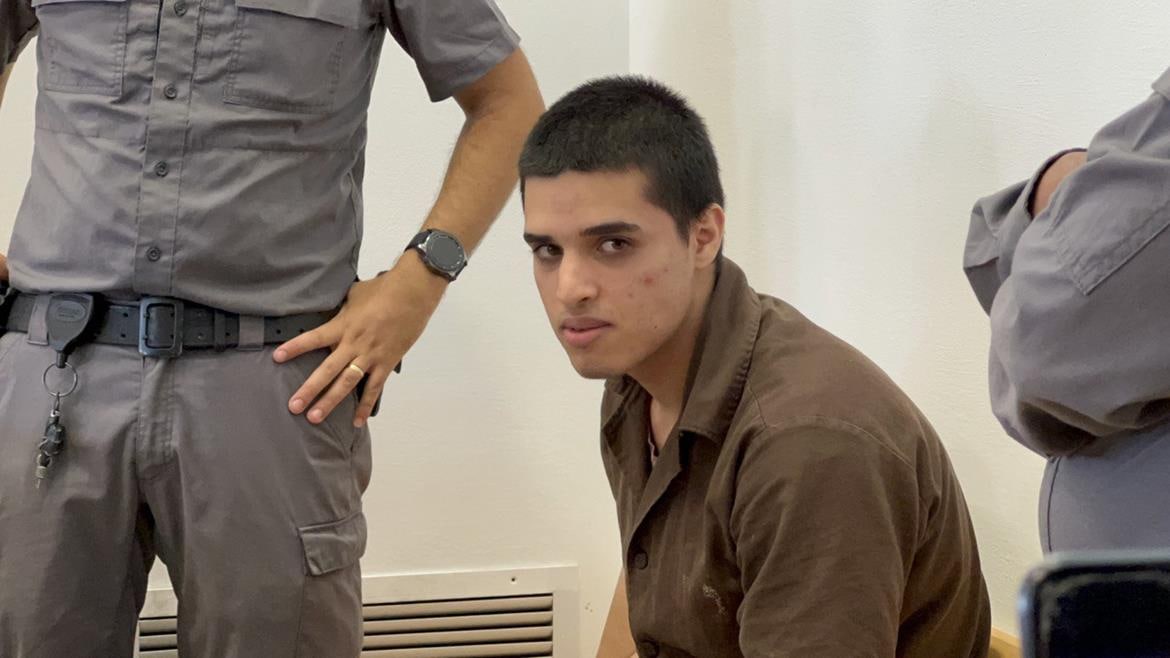Israeli authorities have refused to release 21-year-old Palestinian Ahmad Manasra. On Thursday, September 1, the Beersheba district court rejected an appeal for release filed by his lawyer. Manasra has spent his adolescence in occupation prisons and has been subjected to torture, leading to a severe deterioration in his health. Israel has defied repeated international calls for his release and has held him in illegal solitary confinement for 10 months.
Manasra was arrested by Israeli forces when he was only 13 years old for being present with his cousin, 15-year-old Hassan Manasra, during the alleged stabbing of two Israelis near the illegal Pisgat Ze’ev settlement in occupied East Jerusalem in 2015. His cousin was immediately shot and killed by a settler.
A mob then brutally beat Manasra, who was then run over by an Israeli driver. He suffered fractures to his skull and bones and was left on the ground as the mob jeered at him, yelling “Die!”. Footage from his illegal interrogation showed him in severe distress, repeatedly saying, “I can’t remember,” as an Israeli interrogator yelled accusations at him.
While acknowledging that Manasra had not participated in the incident, an Israeli court still charged him with attempted murder, claiming that he had the “intention” to kill.
Shortly after, the Knesset proceeded to amend existing rules on juvenile sentencing and approved a draft bill that would allow the imposition of custodial sentences on children as young as 12 years old. Finally approved in August 2016, the law authorized Israeli authorities to imprison a minor “convicted of serious crimes such as murder, attempted murder, or manslaughter even if he or she is under the age of 14.” The sentence would be served once the child turned 14.
The law was invoked against then 14-year-old Manasra during his trial. He was sentenced to 12 years in prison, which was later reduced to nine and a half years.
In November 2021, the Israeli Prison Service placed Manasra under solitary confinement. The order was renewed for another six months in August, in violation of the prohibition of torture under international law. In February 2022, Manasra’s lawyers applied for a case review that could allow him to be released on parole. However, the application was rejected.
In June, his case was classified under “terrorism,” following which, his appeal for release was rejected, in accordance with the counter-terrorism law. This law came into effect in November 2016, and amendments that barred early release for those convicted of serious crimes involving terror acts were enacted in December 2018, over two years after Manasra’s conviction in May 2016.
“[Israel’s] ill-defined and overly broad Counter-Terrorism Law has led to far too many instances of arbitrariness and abuse,” UN experts reiterated in July. “It’s retroactive application to Ahmad, which resulted in the denial of his early release, is illegal, disproportionate and discriminatory.”
“Ahmad’s imprisonment…has deprived him of childhood, family environment, protection, and all the rights he should have been guaranteed as a child,” according to the UN experts.
While rejecting Manasra’s appeal on Thursday, the court once again based its ruling on the fact that the case was classified under the counter-terrorism law. Manasra’s lawyer, Khaled Zabarqa, said that “As for the medical status of Ahmad, the court has rejected the appeal under the pretext that [the state of] Ahmad’s psychological health is not urgent or dangerous enough to release him.”
Medical reports, including one filed by a psychiatrist from Doctors Without Border (MSF), state that Manasra is suffering from schizophrenia. He is also suffering from psychotic delusions and has been severely depressed with suicidal thoughts. In June, he was shifted to the Ramleh prison hospital due to his condition.
“As his defense team, we say that these decisions are a shame on the “justice” systems of the occupation,” Zabarqa said on Thursday, adding that the decision was indicative of an “apartheid judicial system,” and, “Today we witnessed one of the manifestations of this apartheid regime, in which Palestinian children are tried for these kinds of [counter-terrorism related] violations.”
Appearing in court on Thursday, Manasra said, “I miss my family.”





